Meet the (New) Faculty: School of Communication
It’s a new academic year, with new buildings, new students, and naturally, new faculty.
Here’s a little guide to help you get to know Emerson’s newest full-time instructors.
Previously: Institute for Liberal Arts and Interdisciplinary Studies and School of the Arts.
Communication Sciences and Disorders
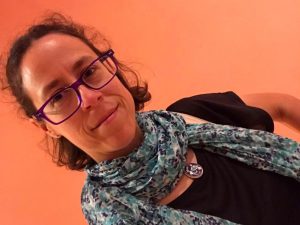
Robin Danzak
Associate Professor
Will teach: language and literacy
Robin Danzak’s research focuses on bilingual writing of adolescents and adults, examining connections between language, culture, and identity. Currently, she is studying the impact of global/local service learning on student learning and intercultural competence, and co-writing an autoethnography of adoption. Danzak taught Spanish in Florida public schools while completing her PhD in Communication Sciences and Disorders at the University of South Florida. Prior to that, she lived in Chile for five years, where she completed an MA in Linguistics. In 2014, she spent a semester in Italy as a Fulbright Scholar.
ET: What do you most look forward to teaching students?
RD: I want to help students understand how they fit into the community and that the most meaningful learning comes from engaging with others. Also, that there are many ways to approach a question or problem… most times, there’s no “right” answer, but different perspectives. The next step is figuring out how to rationalize your approach and allow others to clearly see your perspective and understand it.
ET: What was the last new thing you learned?
RD: Lately I feel like every day I learn a new way to walk or drive in/around Boston. It seems like there is never a direct way, but some ways are better than others. The big lesson: All the convenience of walking around the city has an equal and opposite reaction of inconvenience when it comes to driving and parking!
ET: What do you do when you’re not working?
RD: I am preparing to run a trail marathon in Vermont in October! This goal is a little scary, but also fun. I hope I can make it!
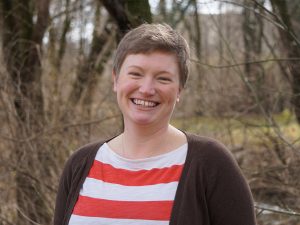
Lindsay Griffin
Assistant Professor
Will teach: speech language pathology
Lindsay Griffin received a PhD in Communication Sciences and Disorders from James Madison University in August 2019. She has held clinical positions within the Spaulding Rehabilitation network and at Beth Israel Deaconess Medical Center in Boston, and also has served as an adjunct professor at Northeastern University. She has over seven years of experience as a certified speech language pathologist, with clinical and research interests in the evaluation and treatment of adult dysphagia.
ET: What do you most look forward to teaching students?
LG: I look forward to supplementing course materials with evidence-based practice techniques and examples from my clinical experiences to contribute to the students’ knowledge of speech pathology while honoring the patient experience.
ET: What was the last new thing you learned?
LG: At new faculty orientation, I learned that many Emerson graduates go on to a life of fame. Even Jay Leno graduated from Emerson with a bachelor’s in Communication Sciences and Disorders.
ET: What do you do when you’re not working?
LG: I have a very happy and active 2-year-old at home who keeps me busy. I also enjoy walking my English springer spaniel, spending time with friends and family, reading, and watching movies.
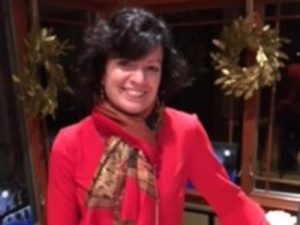
Patti Nelson
Scholar-in-Residence
Will teach: speech language pathology
Patti Nelson will serve as graduate program director for the master’s program in Communication Disorders, and will mentor graduate and undergraduate students. Her areas of special interest include working with children and adults with autism, traumatic brain injury, dysphagia, and cognitive impairments; along with areas of program development, supervision, teaching, and mentoring. Most recently, she supervised Clinical Fellows as part of Easterseals of MA. Nelson has supported a variety of professional teams to include occupational and physical therapies, assistive technology specialists, social work, and speech language pathologists and assistants. Along the way, she has taken pride in her ability to provide educational opportunities to a variety of professional, direct care staff and families. Nelson is active in her home community and serves as secretary to the town Disabilities Commission.
ET: What do you most look forward to teaching students?
PN: In any class that I teach, I look forward to teaching students that speech language pathology within the Communication Sciences Department can offer a lifetime of opportunities to someone looking to combine helping others, counseling, advocating, integrating science, and taking theory and applying it for positive outcomes with individuals with communication challenges.
I hope to instill a love of learning, a strong work ethic, fairness (you do your work and I will be fair in respecting your perspective on things), and life skills of how to maintain professionalism, how to always have a plan B when problem solving, and how to ask for help when needed.
ET: What was the last new thing you learned?
PN: I learned about assessment tools that can enhance my courses and can provide me with a quick perspective of what students are learning from my classes, and what I need to spend more time on (what is muddy).
I also learned that there is a learning curve with taking on my new position, that I need to be patient with myself as I learn, and that my new colleagues have been very helpful as I navigate these new waters by my asking questions, seeking advice, and learning who to go to for what.
ET: What do you do when you’re not working?
PN: I love to spend time with my family (my husband and two adult children — both recent college graduates), along with participating in tap dancing, singing in a holiday choir, reading, traveling, and taking in my guilty pleasure of watching preferred TV shows (This Is Us, Grey’s Anatomy…and yes, Hallmark movies).
Communication Studies
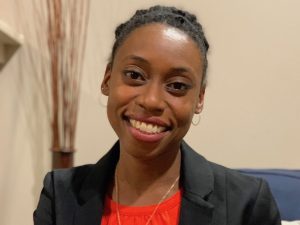
Sharifa Simon-Roberts
Scholar-in-Residence
Will teach: communication and media studies
Sharifa Simon-Roberts hails from Trinidad and Tobago, and brings her unique perspective to her teaching and research. Her work centers on television, new communication technologies, and culture, with specific reference to groups traditionally underrepresented in the media and society as a whole, such as women, Caribbean immigrants, and black audiences. Simon-Roberts designed an activity to increase media literacy among undergraduate students, which was published in Growing Through Communication: Releasing the Speaking Dynamic in You. She also co-authored a chapter in Journalism, Gender and Power. Her second co-authored chapter is due to be published later this year in Media, Myth and Millennials: Critical Perspectives on Race and Culture. Her research has been presented at various communication conferences.
ET: What do you most look forward to teaching students?
SS-R: I most look forward to examining with students the diverse issues that are part of the fields of communication and media studies.
ET: What was the last new thing you learned?
SS-R: Recently, I was listening to a podcast during which participants were talking about the technical side of Netflix. I’m fascinated with the social and cultural impact of video on demand, but less knowledgeable about the technological capabilities that make it possible. Listening to the software engineers discuss the technical aspects was very insightful and helped me to learn more about the process of streaming video.
ET: What do you do when you’re not working?
SS-R: When I’m not working, I enjoy practicing yoga, traveling, exploring new places, socializing, listening to podcasts, and watching television shows. These activities help to reset my body, mind, and spirit. Plus, my research centers on communication and media studies, so even when not working, I’m being inspired for work.
Journalism
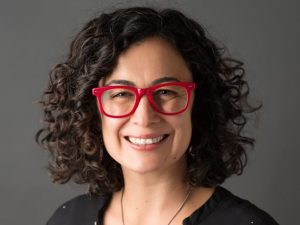
Lina Maria Giraldo
Journalist-in-Residence
Will teach: data visualization
Lina Maria Giraldo is a Colombian-born, Boston-based designer and artist with a background in co-design, civic media, art, and technology. She focuses on interactive storytelling leading to social change, and explores the questions of being Latinx, the impact of humans on our surroundings, and the power of collective storytelling. Over the last 15 years, her work has focused on creating messages that portray the fragility of our environment, community, equality, and immigration concerns, and has been featured in the Boston Globe, ABC News, WBUR’s The Artery, Artlink, WGBH, and NPR, among others. She was awarded the Tsongas Scholarship at Massachusetts College of Art and Design. Giraldo holds a master of professional studies in Interactive Telecommunications from Tisch School of the Arts at New York University. At NYU, she received the Paulette Goddard and the Tisch School scholarships.
ET: What do you most look forward to teaching students?
LG: What I love about teaching is the students’ open minds to learning new things, taking risks, seeing the challenges with a different perspective, playing, and learning from their point of view. Every class I learn something new from my students.
ET: What was the last new thing you learned?
LG: I learned how to take care of myself first before helping others. I like to think of the analogy of the oxygen mask on an airplane. In the past, I pushed the limits of my capacity to change my surroundings, until I realized that I forgot the importance of self-care and [became] spread too thin, with not enough strength to continue.
ET: What do you do when you’re not working?
LG: I love being outdoors, running, swimming, kayaking, gardening, reading to my daughter, and watching movies and playing board games with my family.
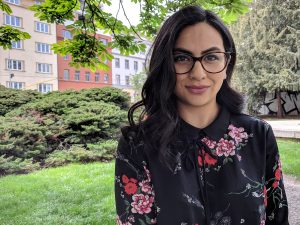
Azeta Hatef
Assistant Professor
Will teach: journalism studies
Azeta Hatef is a media researcher and award-winning instructor whose academic interests focus on issues of social media as activism for underrepresented groups, gender and identity, and media systems in a global context. She has conducted research in Afghanistan examining the complex global beauty industry, including analysis of the post-feminist politics of choice, ethnic/class politics, and consumerism in Afghanistan. In 2017-2018, Hatef was the recipient of a Fulbright Research Scholarship in the Czech Republic. Her research examined minority media production and social media engagement among Romani activists to better understand the contextualized dynamics of these mediated spaces in providing marginalized groups places to negotiate identities, build communities, and experience feelings of belongingness.
ET: What do you most look forward to teaching students?
AH: I look forward to teaching students the importance of empathy and compassion in their work as journalists.
ET: What was the last new thing you learned?
AH: Having just moved to Boston, I am learning how to navigate through the city.
ET: What do you do when you’re not working?
AH: When not working, I am usually practicing yoga, catching up on a new TV show, or exploring a new hiking spot.

Moses Shumow
Associate Professor
Will teach: digital design
Moses Shumow spent a decade producing documentary films for local and national networks, including PBS, National Geographic, History Channel, and Discovery. His research, teaching and community engagement efforts have all involved storytelling and digital media production within Miami’s complex and diverse urban geographies. More recently, Shumow’s work has been in Liberty City, a historic African American community in Miami currently experiencing hyper-development and gentrification. He is the editor of Mediated Communities: Civic Voices, Empowerment and Media Literacy in the Digital Age (Peter Lang) and co-author of News, Neoliberalism, and Miami’s Fragmented Urban Space (Lexington). He is originally from southwest New Mexico.
ET: What do you most look forward to teaching students?
MS: I am coming to Emerson from Miami, where I have spent much of my academic career studying the role of media in vulnerable and marginalized communities (lower income, minority, immigrant, public housing). I’m really looking forward to engaging my students around the topics I am most passionate about when it comes to media production, engagement, and research, and finding ways to create similar opportunities for them to grow and learn here in Boston.
ET: What was the last new thing you learned?
MS: I recently listened to an interview with Lily Geisner, author of Don’t Blame Us: Suburban Liberals and the Transformation of the Democratic Party. Much of her research is set in the suburbs of Boston on Route 128 (where my family and I are also now living), and it really left me with a lot of new ways to think about issues that often come up in my own work: the intersecting roles of race, development, and geography, and how popular narratives shape our understanding of the way urban and suburban communities function.
ET: What do you do when you’re not working?
MS: My wife and I have three children who keep us very busy! But we all love the outdoors, reading, going to the beach, and watching good movies.
Marketing Communication
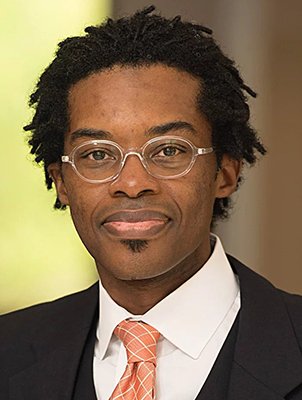
Brent Smith
Professor and Chair
Brent Smith is an accomplished teacher-scholar, consultant, and practitioner with expertise in strategy, analytics, ethics, and global business. He has developed more than 20 courses for students in undergraduate, graduate, international, and online programs. Smith’s research has appeared in leading mainstream and niche academic journals, including Journal of Business Research, Psychology & Marketing, Journal of Business Ethics, Marketing Intelligence & Planning, Journal of Global Marketing, Technology in Society, Journal of Consumer Marketing, Journal of Sport & Social Issues, and Journal of Education for Business. He received his PhD in Marketing from Drexel University.
ET: What do you most look forward to teaching students?
BS: I look forward to teaching students how to appreciate the joys and tensions in questioning everything and coming to terms with everything. In marketing, this can help us appreciate the diversity of perspectives, perceptions, and paradigms that people apply while trying to make a living in their VUCA world — volatile, uncertain, complex, and ambiguous.
ET: What was the last new thing you learned?
BS: Patience involves compromise with blessings. It’s not always easy to give or sustain, but it always affords some kind of lesson in self-awareness, humility, and respect for others every day.
ET: What do you do when you’re not working?
BS: I enjoy spending time with my family. We like to travel, visit playgrounds, and dance to James Brown, the Temptations, and the Carters!
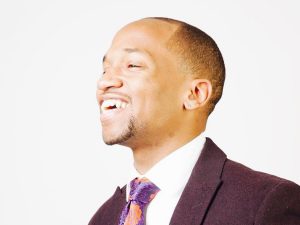
In addition to the School of Communication’s new faces, Communication Studies faculty member Deion Hawkins was named Assistant Professor of Political Communication and Director of Forensics.
Hawkins has been involved in competitive speech and debate since he was 13 years old. Over six years of coaching, he has coached several national finalists, including champions in duo interpretation and IPDA debate. In addition, Hawkins is a health communication scholar whose research uses intercultural theory to mitigate health disparities. An avid social justice advocate, he has studied a myriad of topics, including police violence as a health issue and HIV in the Black MSM community. Hawkins has worked as a health communication consultant for various social marketing campaigns, combatting issues such as human trafficking, advanced care directives, youth homelessness, and PrEP awareness. He received his PhD from George Mason University.
Note: This story was edited to accurately reflect Patti Nelson’s job function. We apologize for the error.
Categories